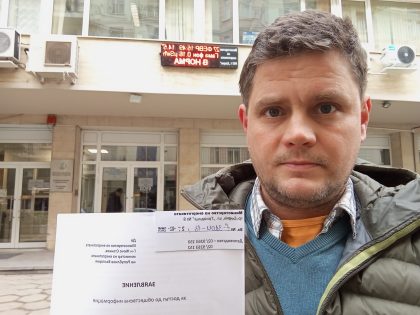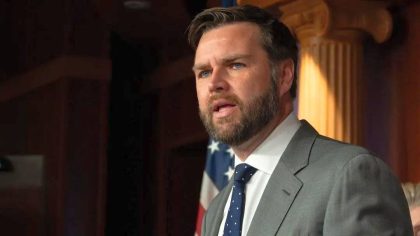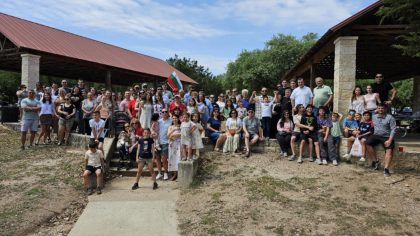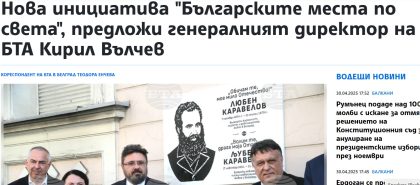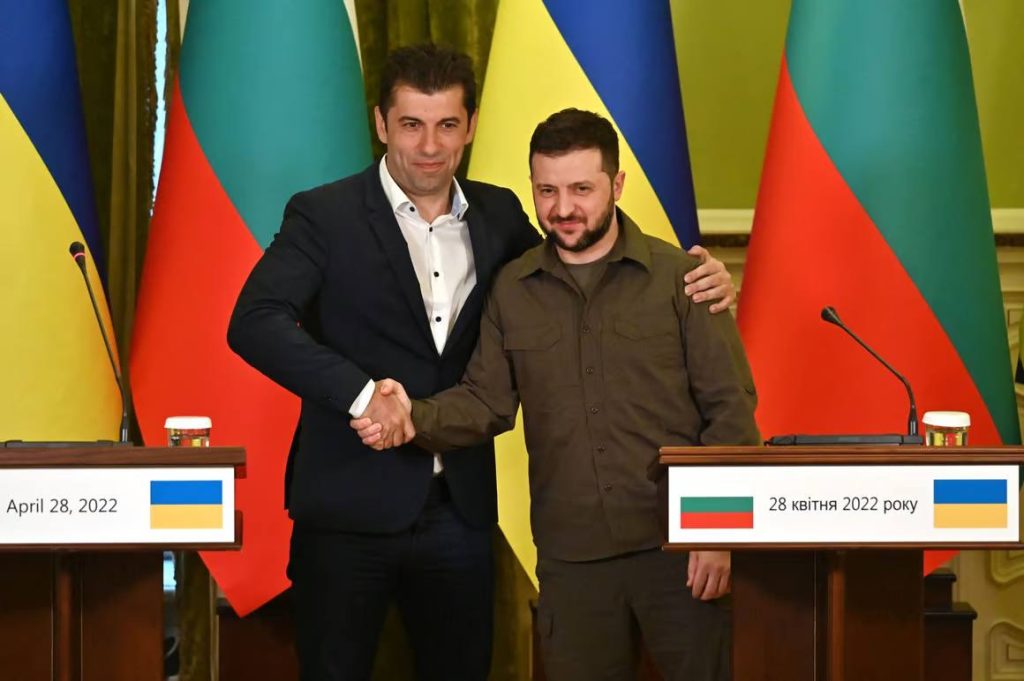
The secret salvation of Ukraine – this is how the German newspaper Die Welt titled its investigation, according to which Bulgaria delivered a third of the weapons to Ukraine last year.
„When the then Bulgarian Prime Minister Kiril Petkov arrived on a visit to Kyiv on April 28 of last year, one could ask himself what he was doing there,“ the newspaper’s article begins.
Journalists recall that Zelensky met with Petkov and both of them announced to the media an extremely strange and insignificant-sounding agreement – Bulgaria will repair damaged Ukrainian tanks. At that very moment, it was officially known that only Bulgaria and Hungary among the NATO countries refused to supply arms to Ukraine.
In fact, the newspaper revealed, at that very moment Bulgaria had already launched a secret process for significant military aid to Ukraine. To avoid supplying weapons through official channels, the country gave them to intermediary countries. According to Die Welt’s calculations, in this way Bulgaria covered one third of Ukraine’s needs, and between April and August provided 40% of the diesel for the Ukrainian army. Which is curious considering the fact that the only refinery that Bulgaria has was Russian property.
„This is the story of a secret strategy with which Bulgaria helped Ukraine despite the opposition of some circles. The EU’s poorest country, long believed to be loyal to Moscow, has shown courage at the right moment that could be an example for others to follow. Despite its dependence on Russia and concerns about Russian aggression, Bulgaria found a creative way to stand by Ukraine. The then Prime Minister Kiril Petkov and Finance Minister Asen Vassilev are behind this strategy,“ the newspaper wrote. And adds: also in imposing sanctions and cutting off Russian gas, Bulgaria took a leading role in the EU.“
The Ukrainian government confirmed our information in this article, the newspaper also wrote.
„Kirill Petkov showed integrity and I will forever be grateful to him for putting all his political skill into finding a solution to the arms problem,“ Foreign Minister Dmytro Kuleba told Die Welt. – The story is simple. While some members of the ruling coalition in Bulgaria sided with Russia, Petkov chose the right side of history: he helped us defend ourselves against a much stronger enemy.“
Petkov was already acting on February 25, 2022, Die Welt learned. The day after Russia’s attack, there was a European Council in Brussels, and as each prime minister made an address, the meeting dragged on late into the night. Kiril Petkov went around each of the leaders and looked for a conversation.
He explained that Zelensky will not survive 24 hours without help. He proposed to exclude Russia from the SWIFT system and to freeze the European Bank’s bank loans to the Russian Central Bank. He talked to Macron, to Scholz – most leaders were skeptical. In the end, however, the European Commission accepted his proposal and it was implemented later.
In parallel, Asen Vassilev participated in the meeting of EU finance ministers in Paris. There, too, the ministers were still quite hesitant, most still unable to grasp the news of the attack. Vassilev came out and gave a speech. But not about economics and finance, but explained to his colleagues what the „denazification of Ukraine“ means for Putin.
He gave Bulgaria as an example after the end of the Second World War and indicated the number of killed dissidents, opposition, intelligentsia, priests.
Participants in this meeting confirmed to Die Welt that Vassilev’s speech changed the minds of the ministers. Two days later, Brussels started with the economic sanctions. In European circles, they are called the „Bulgarian proposal“.
The newspaper also reveals what exactly happened during Dmytro Kuleba’s visit to Sofia on April 10 last year. At the time, the war was not going well for Ukraine – it had managed to stop the Russians in the Kyiv region, but its weapons and ammunition had run out, and the West had not yet been able to supply it with new ones. Ukraine needed Soviet-made weapons and knew that Bulgaria’s warehouses are full.
Zelensky sent his minister to Sofia. In front of the public in our country, Kuleba thanked Bulgaria for accepting refugees, but did not mention anything about weapons. However, completely different conversations were taking place behind closed doors, the newspaper writes. Kuleba explained to his hosts that the situation is a matter of life and death.
Petkov replied that the domestic political situation is very complicated, but he will do everything possible to help. The government gave permission to intermediaries to export Bulgarian weapons and thus solves the problems. Private arms manufacturers were working at full steam. Planes filled to the brim with ammunition took off from Bulgaria to Poland. They landed at Rzeszow Airport, 70 km from the Ukrainian border. This airport is heavily guarded by NATO and is the most important for Ukraine. Bulgaria provided corridors for weapons and ammunition by land through Romania and Hungary.
About a third of the necessary ammunition at this moment is precisely Bulgarian, says Petkov. Kuleba confirms his data. Shipping was paid by US and UK.
It became problematic in June, when the head of Kintex, Alexander Mihailov, was removed from his post and exported trade data with the aim of overthrowing the Petkov government. He then reported exports worth 2 billion euros.
At the same time, the Bulgarian Lukoil refinery also supplied diesel for the Ukrainian army. Vassilev proposed that it should export its excess oil, and his proposal was immediately accepted. About 50% of the production covers the needs of Bulgaria, the rest goes directly to Ukraine. And here the same tactic is used – the diesel is exported through intermediaries. Kyiv also confirms this information.
Diesel is transported by trucks and also transferred to trains. At the same time, Bulgaria is still completely dependent on Russian gas and oil, and this is the reason why it did not join the sanctions affecting the export of Russian oil.
Russia knows about the help that Bulgaria provides to Ukraine. Back in April, its first response was a cyber-war against the country. Hacker attacks electricity producers, against the post office… The blocking of the payment of pensions was due to such an attack. In response, Petkov expelled 70 diplomats from the embassy in Sofia on charges of espionage.
According to the newspaper, this is also the reason why Russia stopped gas supplies to Bulgaria without regard to negotiations and agreements. However, Petkov’s cabinet managed to find liquefied gas from the USA literally within hours, in the following weeks he connected the country with Greece and negotiated gas from Azerbaijan. Thus, the Bulgarians do not feel a lack of gas despite the suspension of supplies from Russia, reports „Die Welt“.
More info: Novinite.bg / Die Welt / ClubZ
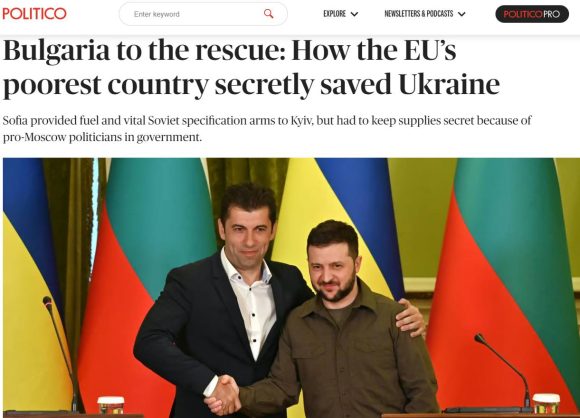
.
Video:
.

